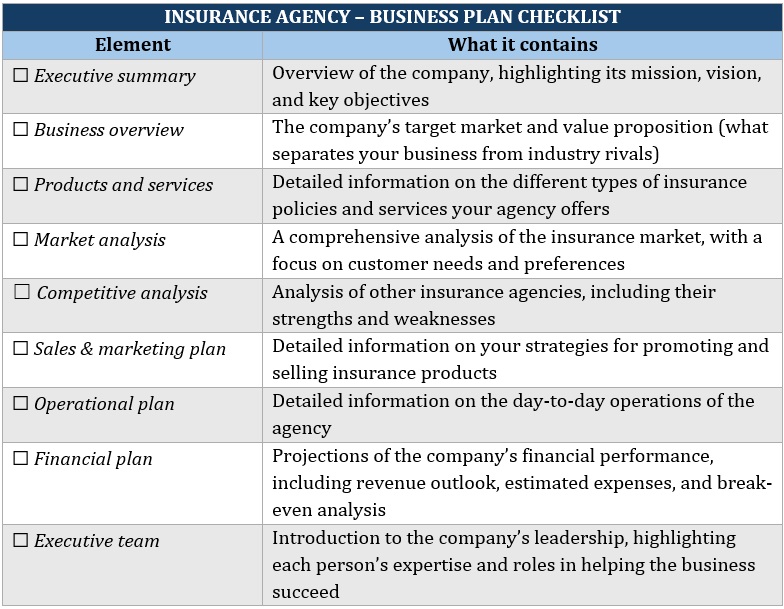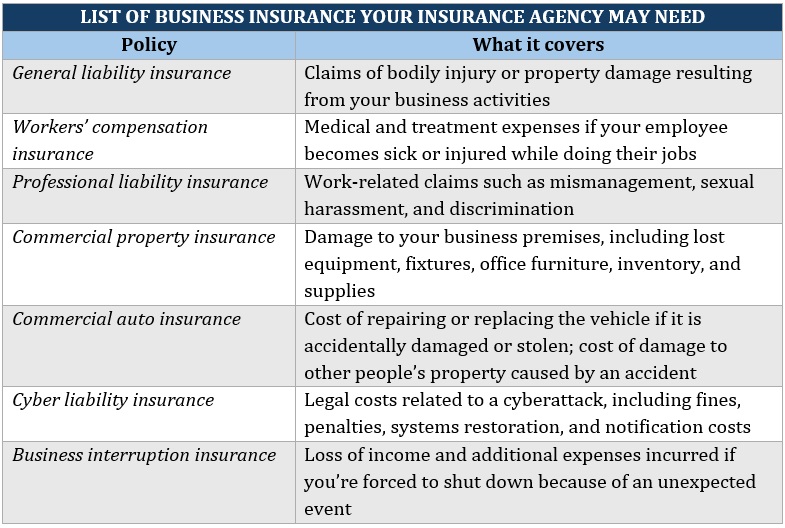

So, you’ve decided that the massive opportunities of running your own insurance business are just too hard to pass up. But there’s a hitch – apart from purchasing a few policies, your industry experience is close to none.
This begs the question, is starting an insurance agency with no experience a good idea?
In this article, we will discuss the pros and cons of launching your own agency with almost zero insurance experience. We will also walk you through the process and explore tips on how you can keep your business profitable.
If you dream of having your own insurance agency but don’t know where to start, then you’ve come to the right place. Find out how you can build your insurance business from scratch and if doing so without prior industry experience is a smart idea.
There aren’t many barriers if you want to launch your own insurance business even if you have little industry experience. All you need to do is get the right insurance licenses and business permits and you’re good to go.
But is starting an insurance agency with no experience advisable? Probably not.
Just like other types of businesses, running your own insurance agency requires hard work, commitment, and dedication. It also helps if you have a certain level of industry experience as this puts you in a much better position to succeed.
Even so, it doesn’t make your agency completely immune from the challenges facing businesses, especially those in the first few years of operation.
Data from the Bureau of Labor Statistics (BLS) reveals that about 20% of new businesses fail during the first year. The failure rate rises to 45% after five years and to 65% by year 10. By the fifteenth year, only 25% of businesses survive.
Figures for the finance and insurance industries are slightly different, with around 23% of new businesses closing within the first year. The number jumps to 47% by the fifth year and 62% after 10 years. Only 27% of finance and insurance businesses remain in operation after 15 years.
BLS’ data, however, doesn’t show if business owners have industry experience before opening their companies.
If you’re starting an insurance agency with no experience, it’s better to partner with insurers that provide ongoing training and support. Some insurance giants have captive agency programs that offer training and assistance to help you launch your agency. Among these are Allstate, Farmers, and Liberty Mutual.
Without this kind of support, starting your own insurance agency without industry experience is risky. If you want to launch an insurance business but have limited expertise, your best move is to gain that experience by working for an insurance agency.
Insurance agencies are responsible for selling the policies of their partner insurers. They can represent one or several insurance companies. These businesses serve as intermediaries, providing potential clients with information about the insurers and their products and services.
Insurance agencies have contracts with insurance companies detailing the policies they can sell and how much they can expect for each successful sale. These businesses also have the power to bind coverage. This means that they can confirm that coverage is in place even if the policy has yet to be issued.
There are two types of insurance agencies:
Captive agencies represent just one insurance company, either full-time or as an independent contractor. Most captive insurance agencies receive operational support from their partner insurers. These may include training, office space, and administrative staff. Some get referrals and leads on potential buyers.
Independent agencies work with multiple partner insurers. Since they’re not tied down to a single company, they can offer clients a wider selection of insurance policies. Independent insurance agencies typically receive higher commissions than captives. These businesses, however, shoulder their own operating expenses.
Unlike agencies, insurance brokerages aren’t obligated to sell the policies of specific insurers. Because of this, they can access a wider range of insurance products. This allows them to offer clients more coverage options compared to insurance agencies.
Insurance brokerages represent the consumers, unlike agencies which represent the insurers. Brokerages help insurance buyers assess their risks and match them with the policies that best suit their needs. They also don’t serve a single insurer. This means that they can place policies with different insurers depending on the market conditions and level of coverage.
Insurance brokerages, however, still owe insurers certain responsibilities. Because they offer these companies’ products for sale, they must ensure that all client information they provide during application is truthful. They must also make sure that premiums are paid on time. Some insurance companies also give brokerages the power to quote, bind coverages, and handle claims on their behalf.
Here’s a summary of the main differences between an insurance agency and an insurance brokerage:

If you feel that helping buyers find the right coverage suits you better, then running a brokerage firm is for you. This step-by-step guide on how to start your own insurance brokerage can help you jumpstart your business.
Regardless of whether you have experience or not, there are steps you need to take if you want to start an insurance agency:
Having a strong understanding of how businesses work is a must if you want to start an insurance agency. This allows you to come up with a sound business plan that will serve as your guide in steering your agency towards profitability. A solid business plan can also help you identify your target market and secure funds for your business.
Here’s a checklist of what your insurance agency business plan should include:

A deep understanding of how the industry works is crucial if you want to launch an insurance business. That’s why starting an insurance agency with no experience isn’t advisable. Years of experience as an industry professional can help you build the necessary expertise to run an insurance agency. This experience can also give you a clear picture of what insurance lines to pursue.
Agents and brokers can also use these years to build a strong network of insurance providers. These insurers can help you access different insurance products. They can also help widen your client base, which will serve as your business’ lifeline.
Getting an insurance agency up and running requires a lot of funding – but how much do you really need? The actual amount depends on a range of factors, including your business structure, location, and the types of policies you plan to sell.
On average, your insurance agency will need a startup capital of $50,000 to $500,000, possibly even more. This will cover the business’ daily operational expenses. These include office rent and equipment, licensing and registration costs, tech expenses, and insurance.
Before your insurance agency can legally operate, there are several registration and licensing requirements that you must meet. The requirements vary depending on the state where your business is located.
If you’re launching your business in Florida, you will need a 21-05 Florida insurance agency license.
If your company is in the Lone Star State, there are certain Texas insurance agency license requirements you must meet.
The Golden State also has its own licensing requirements, as outlined in this guide on getting a California insurance agency license.
Apart from insurance licenses, your agency must have the following:
You need to register the name of your insurance agency and pay a fee. Some states restrict the use of certain terms to avoid misleading the public.
Insurance agencies must register as a “resident business entity” with their state insurance department.
Depending on the state, you may need to get a general business permit or license to legally operate your agency.
This depends on your business structure. If you register as a partnership or corporation, you must use your federal employer identification number (FEIN) when filing taxes. If your business is a sole proprietorship or single member LLC, you can use your Social Security number.
Wouldn’t it be ironic if your insurance agency operated without proper coverage? Ideally, your business would benefit from having the following coverages:

Here’s a more detailed look at these types of business insurance.
Starting your insurance agency is just the first step. The real challenge is keeping your business profitable. Here are some practical tips on how to maintain your insurance agency’s profitability:
Goals keep you and your employees motivated. If set correctly, these goals can also help you measure your business’ success. Goals can give your insurance agency a clear picture of where it wants to go. They can also show how you can reach business targets, and what new products and services you can offer.
Success in the insurance market means having to continuously drive leads. This is where starting an insurance agency with no experience can prove costly. Agencies can employ different strategies to tap new leads. Find out the best ways to find insurance leads in this guide.
As clients’ needs change, it also creates a need for new insurance products. This opens opportunities for your insurance agency to find a niche to help it grow. While this takes time and effort, finding your niche market can reap dividends in the long run.
Experts believe that the only way for the insurance industry to move forward is to embrace technology. This is evident in the increased use of AI to reduce costs, mitigate risks, and engage with clients.
If you’re starting an insurance agency with no experience, the fastest way to build your expertise is to keep up to date with the latest industry trends. You can do so by subscribing to our free daily newsletters. By joining our mailing list, you get access to breaking news and industry developments as they happen.
Are you considering launching an insurance business remotely? Learn how to start an insurance agency from home here.
Do you think starting an insurance agency with no experience makes sense? Let us know in the comments.
